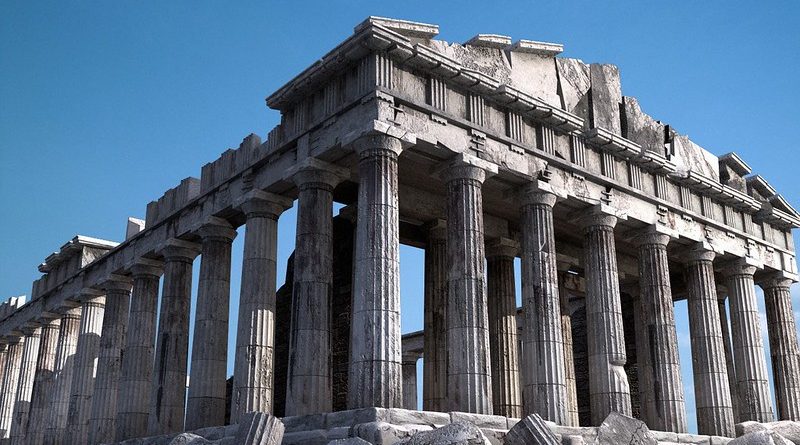Athenian civilization and Ancient Greeks
While the parameters of Ancient Greek culture are difficult to define, its influence on the progression of Western civilization cannot be understated. Philosophy, politics, art, architecture, literature and science all underwent significant innovation in the period known as Classical Greece, which lasted roughly from the 5th Century BC to the 4th Century BC. Not only did the civilizations’ culture resonate into the hugely influential Roman Empire but also throughout Western civilization in general. For the majority of this period, the two most dominant and influential civilizations within the greater Greek race. In spite of their contrasting ways of life, the two superpowers retained a tenuous peace early in the Hellenic era.
Sparta was a very closed-off society, its population highly distrustful of outsiders. It also had a very unique ruling system for its time. Ruled over by two Kings, supposed descendants of Heracles, the constitution also consisted of the Ephors, a small group of elders who supervised the Kings and handled criminal issues, and the Gerousia, a sort of council of elders, who were elected for life. Most notable about Ancient Sparta was its aggressive focus on its military, with all male children forced through a rigorous and harsh education in order to nurture them into perfect soldiers. The “education” was so extreme that many of the children would not survive into adulthood. Certain aspects of Spartan culture were progressive for the time, particularly the treatment of women. In contrast to the rest of Greece and even the rest of the world, women enjoyed a higher level of autonomy and respect, being the heads of their households.
Unlike other Greek cultures in which women were forced into subservience and encouraged to take up stereotypically effeminate customs, Spartan women had economic independence, were literate and numerate and athletic, all qualities other Greek societies found repulsive. However, the Spartans’ mistreatment of outsiders somewhat eclipsed its progressive treatment of women. Although Spartans were the ruling class of the Lakonian population, they were undoubtedly a minority within the region. The vast majority was a race termed Helots by the Spartans. Originally Greeks who were defeated by Spartans in battle and enslaved, Helots were reduced to a subservient position within Spartan society, their function not dissimilar to serfs. They were regularly abused despite any wrongdoing and had virtually no rights.
In contrast to the military-oriented Spartan culture, Athenian civilization was somewhat better-rounded. Widely considered the birthplace of democracy, Athens also saw numerous innovations in diverse fields such as literature with influential playwrights such as Sophocles and more notably, philosophy with important figures Plato and Aristotle both being Athenian. Tensions between the two states came to a head with the Peloponnesian War, a long and brutal conflict, which devastated both societies. Although Sparta emerged victorious, in no small part due to their formidable military, the state was left weak and vulnerable due to the intensity of the conflict. After a short period as the ruling power of all Greece, Sparta eventually collapsed while Mycenae emerged as the dominant power.
Although the entirety of Ancient Greek culture is fascinating, it is the achievements of the Classical period, which was particularly influential. The world would doubtlessly not be what it is today without the numerous innovations of Classical Greece.




